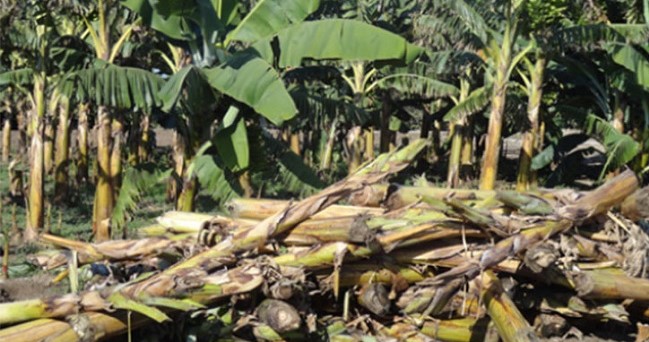An agriculture expert, Mr Ismail Olawale, has blamed the increasing waste from agricultural produce on poor use of technologies meant for food preservation in the country.

Olawale, a fellow of the Nigerian Agriculture and Extension Liaison Service (NAERLS), said this during an interview with the News Agency of Nigerian (NAN) on Tuesday, December 31, 2019 in Lagos.
The expert said that lack of patent rights and commercialisation of technologies meant for food preservation was responsible for the increase in waste from agricultural produce.
“The rate of waste from our agricultural produce in the country is currently high owing to lack of effective preservation technology.
“We have many people who had developed various technologies for food preservation in the country.
“The major problem is that many of them do not have copyrights or have issues relating to patent rights.
“After the experts must have concluded their research findings and come-up with the technologies, they used to have issues in having such technologies patented for general use.’’
He said that there were several people and research institutes who had developed various technologies for food preservation in the country.
“The issues facing effective food preservation technologies developed in the country are patent rights, copyrights and commercialisation of the technologies among local farmers,’’ the expert said.
Olawale said that most farmers were aware of the technologies developed for agricultural produce in the country, but few had adapted to their usage.
“Most local farmers are actually aware of the development of some of the technologies meant for the preservation of agricultural produce; but old habits really die hard.
“For example, there are technologies developed for preservation and for the transportation of tomatoes from the northern part to the southern part of the country.’’
He said that such technologies were in forms of plastic and improvised baskets that could accommodate pressures when the products were being transported to and from different places.
He said that tomatoes would have been crushed and destroyed in the traditional baskets usually used by local farmers most times before they get to their destinations thereby resulting in lots of waste.
“However, some of these technologies have been criticised because of their sizes.
“Some of the tomato farmers also used to complain that the plastics and improvised baskets are too small compared to the traditional ones.
“They are also fond of complaining that they will have to buy many baskets to contain their harvests before transporting them to the markets,” Olawale said.
He said that the local farmers should be willing to change their old perceptions by embracing the modern technologies.
“When they are available for use, some of the farmers do not follow the standard practices but follow the old one that leads to loss of agriculture produce,” he said.
By Mercy Omoike
